Day 1, 12 March 2025

|
09:30 | Michael Carus nova-Institute Conference Opening |
Strategies in Changing Market Conditions for Cellulose Fibres |

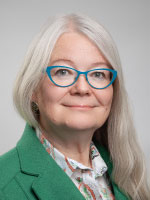
|
Chairperson(s) Michal Carus nova-Institute Asta Partanen nova-Institute |

|
09:30 | Michael Carus nova-Institute Fossil-free Textiles a Long Way to Go |
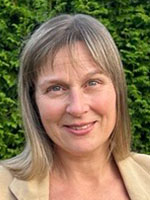
|
09:45 | Anna Palmberg IKEA Democratic Design for IKEA Home Furnishing Textiles |
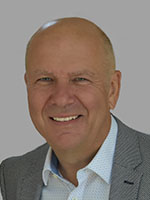
|
10:05 | Dieter Eichinger CIRFS Streamlining Fiber Identity: ‘Cellulose’ as the New Unified Standard Abstract |

|
10:25 | Andreas Engelhardt The Fiber Year Impact of Slow Demand Growth on Manufacturing and Traditional Sales Channels |

|
10:45 | Simone Seisl Simone Seisl – CR Consultant The Lyocell Market – a Bright Future? Abstract |
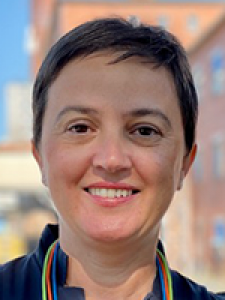
|
11:05 | Marina Crnoja-Cosic The European Technology Platform for the Future of Textiles and Clothing (Textile ETP) Textile ETP the Largest European Open Expert Network for Textile Research and Innovation Abstract |
| 11:25 | Panel Discussion with all Speakers of the Session |
| 11:50 | Lunch and Networking |
Fibre-To-Fibre Recycling from Textiles |

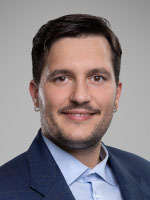
|
Chairperson(s) Lars Krause nova-Institute Kristijan Mrsic nova-Institute |

|
13:10 | Shirin Asaadi Valmet Navigating the Complexities of Textile Recycling: Industrial Scale-Up Challenges and Solutions Abstract |


|
13:30 | Sari Asikainen Kemira Virpi Rämö Kemira Decolorization of Waste Textiles – Comparison of Bleaching Chemistries Abstract |

|
13:50 | Miguel Sanchis-Sebastiá ShareTex Project: REGATEX-Project Scaling up a Chemical Recycling Process for Textile Waste Abstract |

|
14:10 | Roland Luchte LIST Technology Technology for Recycling of (Poly)cotton and Enabling Polyester-free Textiles Abstract |
| 14:30 | Panel Discussion with all Speakers of the Session |
| 14:50 | Coffee Break |
Biosynthetics – Replacement for Traditional Synthetic Fibres |


|
Chairperson(s) Pia Skoczinski nova-Institute Stefanie Fulda nova-Institute |

|
15:20 | Constance Issbruecker Gesamtverband der deutschen Textil- und Modeindustrie e.V. Biosynthetics – Alternatives for Traditional Synthetic Fibres Abstract |
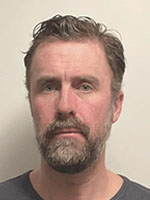
|
15:40 | David Löf Primient Covation Bio-based PDO as Building-Block for Different Biosynthetics Abstract |
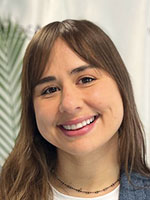
|
16:00 | Luna Aslan NOOSA PLA Fiber for Textiles – Implementing a Recycling Technology for a Bio-based PLA Fibre Abstract |
| 16:20 | Panel Discussion with all Speakers of the Session |
Innovation Award “Cellulose Fibre Innovation of the Year 2025” |


|
16:40 | Asta Partanen nova-Institute Michael Carus nova-Institute Introduction for the Cellulose Fibre Innovation of the Year 2025 |
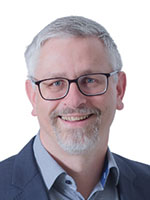
|
16:50 | Philipp Mair-Zelenka GIG Karasek Technical Centers and their Important Role in Innovation |

|
17:00 | Leticia Labriola Fibers365 Hemp365 – Agriculture Decorative and Carrier Material |

|
17:10 | Valentyn Frechka Releaf Paper France Releaf Fiber – Eco-Friendly Paper from urban Fallen Leaves |

|
17:20 | Jens Hofer SA-Dynamics Cellulose Aerogel Textiles – Next-Generation Insulation Materials |

|
17:30 | Oliver Shafaat Sci-Lume Labs Bylon® – Renewable Circular Fibres from Agricultural Waste |

|
17:40 | Aureliano Fertuzinhos TMG Automotive REFIBER – Innovative Plant-based Automotive Leather |
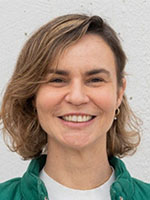
|
17:50 | Julia Reisser Uluu Replacing Plastic in Textiles with Natural, Seaweed-derived Materials |
| 18:00 | Award Voting |
| 18:10 | Beer on Tap & Poster Session |
| 20:00 | Dinner |
| 22:00 | German Bowling |
Day 2, 13 March 2025

|
09:00 | Asta Partanen nova-Institute Day Opening |
Marine Biodegradability versus Fibre Microplastic Formation |

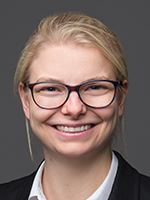
|
Jo-Ann Innerlohinger Lenzing Mika Plum nova-Institute Chairperson |
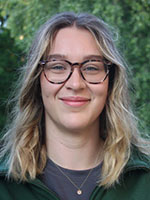
|
09:10 | Olivia Skilbeck University of Leeds The Effect of Preparation, Dyeing and Finishing Treatments on the Biodegradation of Cellulosic Microfibres Abstract |
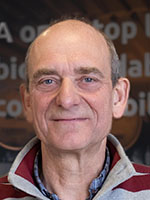
|
09:30 | Bruno De Wilde Normec OWS Bio-end of Life Options for Cellulose Fibers Abstract |
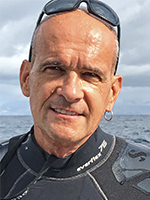
|
09:50 | Christian Lott HYDRA Marine Sciences Key Findings from a Meta-study on the Environmental Fate, Microplastic Formation and Potential Toxicity of PLA – and Implications for Other Biodegradable Plastic Polymers Abstract |
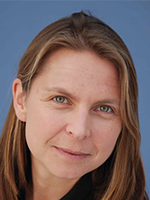
|
10:10 | Miriam Weber HYDRA Marine Sciences Environmental Biodegradation Performance of PHA Polymers in the Open Environment & Options for LCA Abstract |
| 10:30 | Panel Discussion with all Speakers of the Session |
| 10:50 | Coffee Break & Networking |
New Technologies and Applications for Fibres |


|
Chairperson(s) Narendar Poranki nova-Institute Kristijan Mrsic nova-Institute |

|
11:20 | Michael Hummel Aalto University Carbon Fibers from Lyocell Filaments – Understanding and Overcoming the Limitations of Cellulose as Precursor Abstract |

|
11:35 | José Miguel Matos CeNTI – Center for Nanotechnology and Advanced Materials Lignin: An All-in-one Bio-based Solution? Abstract |


|
11:50 | Sascha Schriever ITA – RWTH Aachen Maximilian Mohr SA-Dynamics Cellulose Aerogel Fibre Based Lightweight Super-insulating Non-woven for Sportswear Abstract |

|
12:05 | Cindy Oettel Volkswagen Fabrication of Leather-like Biomaterial Derived from Bacterial Nanocellulose by Using an Optimized Casting Process Abstract |
| 12:20 | Panel Discussion with all Speakers of the Session |
| 12:40 | Lunch Break & Networking |
Supply Chain Innovation |


|
Chairperson(s) Rahul Bansal Birla Cellulose Stefanie Fulda nova-Institute |
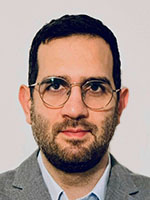
|
14:00 | Ali Tarhini Aalto University Nonwovens with Improved Performance: Learning from Nature Abstract |
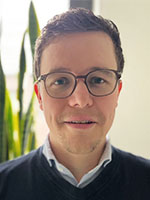
|
14:15 | Nikolas Sandmann Nitto Advanced Film Gronau Defying Gravity – Next Level Absorbent Products Performance Abstract |

|
14:30 | Lasse Holopainen Spinnova Replacing Cotton with Spinnova’s Advanced Clean and Mechanical Fibre Production Technology Abstract |
| 14:45 | Panel discussion with all Speakers of the Session |
| 15:00 | Coffee Break & Networking |
Technologies for Pulps, Fibres and Yarns |


|
Chairperson(s) Marina Crnoja-Cosic The European Technology Platform for the Future of Textiles and Clothing (Textile ETP) Kaj Seeger nova-Institute |
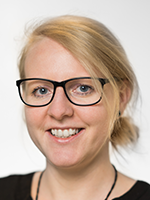
|
15:30 | Inge Schlapp-Hackl Aalto University Make-over of Pulping Strategies for the Production of High Performance Lyocell-type Recycled Fibres Abstract |

|
15:45 | Marcus Elmer Lixea Sweden Unlocking the Full Potential of Biomass in the Production of MMCF Using the Revolutionary Lixea Dendronic® Process Abstract |
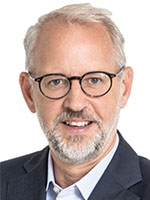
|
16:00 | Jörg Schreiber DIENES Apparatebau Modular Platform Approach for Developing and Upscaling Technologies for Spinning Biobased and Recycled Raw Materials Abstract |
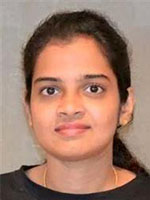
|
16:15 | Divya Dharshini Uma Shankar The Novo Nordisk Center for Biosustainability Harnessing Ocean Water for Sustainable Cellulose Biomanufacturing Abstract |
| 16:30 | Panel Discussion with all Speakers of the Session |
| 16:45 | Closing Remarks |
